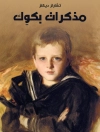In ‘The Collected Short Stories, ‘ Lewis Carroll showcases his distinctive literary style, marked by whimsical narratives and imaginative scenarios that defy conventional logic. This anthology presents a rich tapestry of stories reflecting Carroll’s fascination with the interplay between reality and fantasy, often infused with clever wordplay and absurdist humor. Readers can expect to encounter charming characters and surreal situations that challenge the boundaries of narrative form, situating Carroll’s work firmly within the literary context of Victorian England, where his pioneering exploration of nonsense literature helped shape the genre’s evolution. Lewis Carroll, the pseudonym of Charles Lutwidge Dodgson, was a mathematician, logician, and photographer, whose diverse intellectual pursuits greatly informed his creative output. His dual interests in structured logic and freeform imagination inspired him to craft stories that engage both the intellect and the imagination. Growing up amidst the Victorian era’s formal constraints, Carroll’s writing often rebuffed societal norms, reflecting his desire to inspire wonder and provoke thought among readers of all ages. This collection is highly recommended for both literary scholars and casual readers seeking to delve into the intricacies of Carroll’s storytelling. It serves as an essential exploration of the author’s playful yet profound meditation on language, reality, and the whimsical nature of childhood imagination.
เกี่ยวกับผู้แต่ง
Lewis Carroll, the pen name of Charles Lutwidge Dodgson (1832-1898), was a prolific writer, mathematician, and logician. Born in Daresbury, Cheshire, England, Carroll is most famously known for his contributions to children’s literature, particularly through his masterpiece ‘Alice’s Adventures in Wonderland’ and its sequel ‘Through the Looking-Glass.’ His inventive use of wordplay, logic, and fantasy has fascinated readers for over a century and remains influential in both literary and popular culture. Carroll’s work in ‘The Collected Short Stories’ exhibits his breadth as a storyteller and his ability to infuse narrative with a unique blend of whimsy and complexity. Although best recognized for his narratives set in fantastical realms, Carroll also published works of a serious nature under his real name, notably on mathematical subjects. His literary style often blurred the lines between the nonsensical and the profound, challenging readers to find meaning amidst the apparent chaos of his fictional worlds. Despite his acclaim as an author, Carroll’s personal life was marked by a quiet academic career at Christ Church, Oxford, where he lectured in mathematics. Carroll’s legacy endures, contributing substantially to the genre of literary nonsense and the canon of Victorian literature, continuing to captivate audiences with his enchanting and innovative storytelling.












